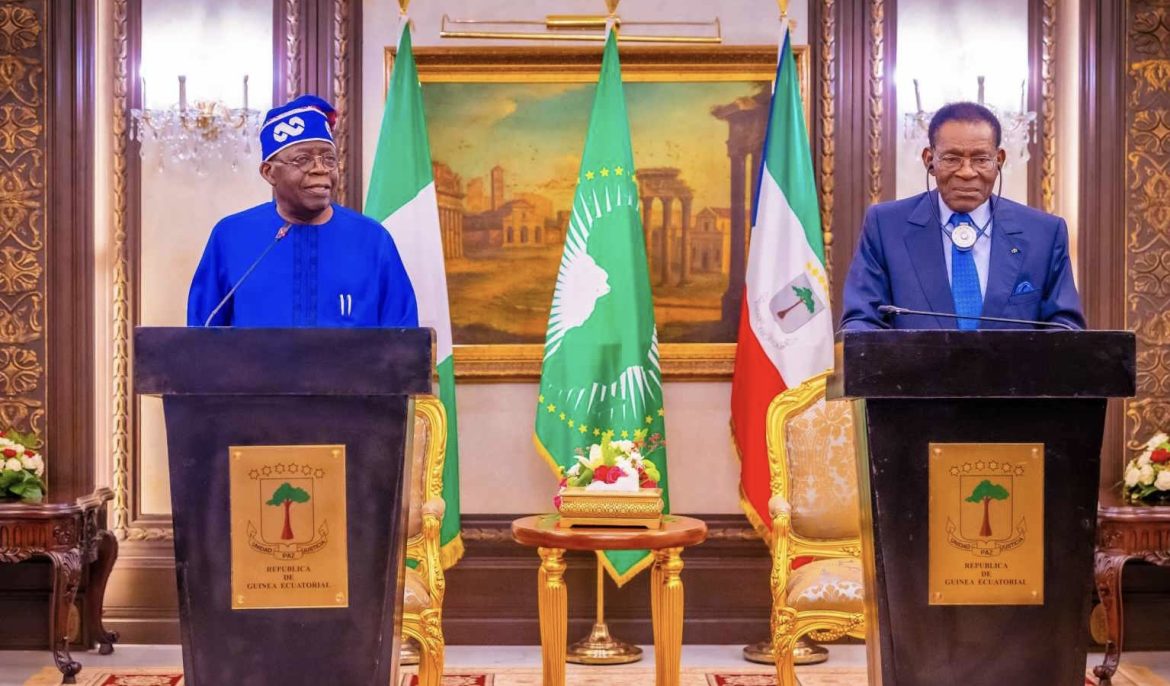In a significant step toward strengthening their partnership, President Bola Tinubu of Nigeria and President Teodoro Obiang Nguema Mbasogo of Equatorial Guinea have signed a crucial agreement for the Gulf of Guinea Pipeline Project. This project aims to enhance cooperation between the two countries, focusing on mutual development and boosting the region’s energy sector.
The agreement, signed on Wednesday evening in Malabo, Equatorial Guinea’s capital, covers a wide range of areas, including the legal and regulatory framework for the gas pipeline, its establishment and operation, and the ownership and transit of natural gas. This landmark deal is expected to open up new opportunities for both nations, particularly in the areas of gas exploration and job creation.
During the signing ceremony, President Tinubu emphasized the potential benefits of the agreement, noting that it would not only boost gas exploration but also create much-needed employment opportunities. He highlighted the importance of such collaborations in addressing some of Africa’s most pressing issues, including food security and economic development.
In addition to the gas pipeline project, the two leaders discussed a range of issues affecting the African continent. They talked about the need for peace and stability, both within their countries and across Africa. President Tinubu pointed out that African nations must work together to resolve conflicts and build a prosperous future for the continent.
“We discussed various areas of conflict and what we can do to promote peace,” President Tinubu said. He stressed that instead of relying on external help, African countries should look inward to solve their problems and drive their development.
The discussions also touched on broader topics like security, the African Continental Free Trade Area (ACFTA), and the importance of food security. Both leaders agreed that Africa’s challenges require solutions that come from within the continent. They expressed a shared commitment to working together through the African Union to ensure that Africa’s future is shaped by African initiatives.
President Mbasogo echoed these sentiments, emphasizing the long-standing and fruitful relationship between Equatorial Guinea and Nigeria. He highlighted the need to deepen cooperation in key areas and expressed his support for Africa’s quest to secure a permanent seat on the United Nations Security Council, a move he believes is crucial for the continent’s development.
The agreement was witnessed by several high-ranking officials from both countries, including Nigeria’s Minister of Foreign Affairs, Amb. Yusuf Tuggar, and his Equatorial Guinean counterpart, Mr. Simeon Esono. Other key figures present included Nigeria’s Minister of Justice, Chief Lateef Fagbemi, and the Minister of Defense, Alhaji Muhammad Abubakar, among others.
The signing of the Gulf of Guinea Pipeline Project agreement marks a strategic milestone in the relationship between Nigeria and Equatorial Guinea. It reflects a broader vision for Africa’s development, where countries collaborate closely to harness their resources, solve their problems, and secure a brighter future for their people.
Source: The Guardian



